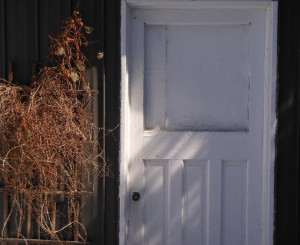 The disciples say to Jesus “Lord teach us to pray, as John taught his disciples.” He said to them, “When you pray, say: “Our Father in heaven…” Luke 11:1-13
The disciples say to Jesus “Lord teach us to pray, as John taught his disciples.” He said to them, “When you pray, say: “Our Father in heaven…” Luke 11:1-13
Prayer itself was not a novel idea for that motley crew of men and women who listened to this new Rabbi. Judaism, expressed in worship, study, scripture and tradition and daily family and work life, assumed a vibrant prayer life and provided a vast catalogue of prayer models. Even considering the psalms alone we find everything from “Be still and know that I am God”(Psalm 46:10) to prayers of thanksgiving for God’s goodness and steadfast love(Psalm 136) to lament in Psalm 22, “ My God, my God why have you forsaken me.” There is no doubt that the disciples had observed Jesus at prayer, and in action, and, in effect, knew that the Master could teach them much in this area of their lives as well. “Lord, teach us to pray.”
Luke’s wording of what we call the Lord’s Prayer is much simpler than Matthew’s, which might suggest that Luke’s is, in fact, the older, perhaps more authentic version than the one we tend to use. In Luke’s version the prayer is a formula to be followed rather than a piece to be recited verbatim. In simple, inclusive statements, God’s presence, power, and involvement with us is acknowledged and celebrated.
A little later in this chapter in Luke there are some pretty straight forward instructions concerning prayer, beginning in verse 9 ”Ask, and it will be given you; search and you will find; knock and the door will be opened to you.” Jesus doesn’t say, do this if you are really desperate, or do this if you feel like it, or do this only for important things, or matters that concern others, or only on Sundays. These instructions are comprehensive, right across the board, pray this, everywhere, all the time, for everything. And God will be faithful in response.
And when we pray, when we ask, seek, knock, doors do open…sometimes the answers to our prayers are not what we want, it is true; and sometimes they come to us in unexpected ways, from surprising situations and people…but doors open and Christ’s Light shines in. Ask! Seek! Knock!
Recipe: Braised Lamb Shanks Expensive but absolutely delicious! Serve bone and all in large bowls with a chunk of crusty bread or on top of mashed potatoes. Add a salad side dish. If you can keep a little bit of the meat before serving, you can add it to the leftover broth, with some water and some barley. Let it cook until the barley is soft and you have another great meal.
2 meaty lamb shanks; olive oil; chicken or beef stock(or water if you don’t have stock)
Onion, diced & 2 or more garlic cloves; celery, diced; carrot, thick slices; herbs such as rosemary, bay leaf, parsley, dried oregano, salt & pepper
A little red or white wine, optional
Brown lamb shanks well in olive oil. Set aside in a heavy Dutch-oven that has a lid.
Fry diced onion, garlic slices & celery in oil and add to pot. Add a couple of cups of stock or water(to almost cover the meat). Add herbs and wine. Bake, covered, in a 300 degree oven for at least 2 hours(check occasionally and spoon broth over meat; add water if needed; take off the lid for a while if the broth hasn’t browned enough). The house will smell wonderful!
